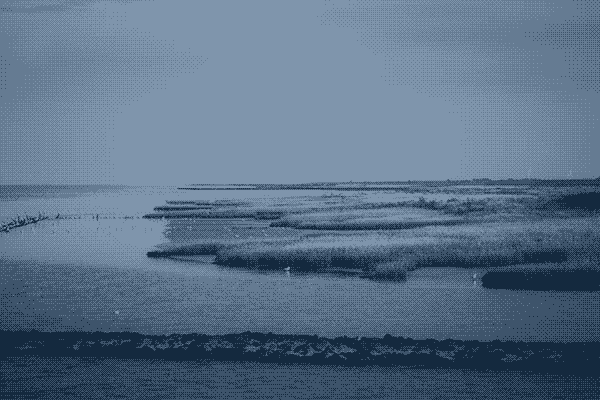

Coastal areas are on the front line when it comes to the impacts of climate change. Rising sea levels, more extreme weather events, accelerated erosion and flooding are directly threatening the existence of certain coastal areas.
The growing anthropogenic pressure on these ecosystems is constraining both their natural evolution and their resilience.
Climate change transforms natural hazards into real coastal risks when human infrastructure is in their path. Faced with this reality, it is urgent to abandon the logic of ‘fighting’ the sea that has prevailed in recent decades and adopt an approach of ‘working with’ natural dynamics.
Surfrider Foundation promotes a vision of adaptation based on three essential pillars: the preservation and restoration of coastal ecosystems as natural protection solutions; spatial restructuring, which consists of giving space back to coastlines by removing human activities; and participatory governance involving all stakeholders in a collaborative process.
This approach aims to strengthen the resilience of our coasts while preserving their exceptional biodiversity and ensuring the protection of coastal communities.
Our approach and requirements
Faced with the climate challenges threatening our coasts and oceans, Surfrider Foundation Europe is rolling out an ambitious political influence strategy to build a resilient society with a low environmental impact.
Europe is experiencing an explosion of maritime activities: booming blue tourism, accelerated deployment of offshore renewable energies, and the emergence of new activities such as seawater desalination.
In this context of growing pressure, Surfrider is working to ensure that the European Union leaves enough space for nature to guarantee the resilience of these vital ecosystems.
In particular, the association is monitoring the implementation of the European regulation on nature restoration, ensuring that Member States include concrete measures in their restoration plans, due in 2026, to achieve the European target of 20% of seas restored by 2030.

Influencing founding texts for better protection
Surfrider anticipates and influences major revisions to European directives governing marine protection. The association campaigns for the Marine Strategy Framework Directive to be better adapted to climate change and to finally enable European seas to achieve good ecological status.
It is also working to ensure that the Maritime Spatial Planning Directive strengthens Member States’ obligations in terms of coastal planning, thereby creating synergy between these two texts to guarantee the health of maritime and coastal areas and ecosystems.
Protecting blue carbon ecosystems
beyond their climate function alone
While Europe is paying increasing attention to blue carbon ecosystems for their ability to capture CO2 – as confirmed by the Ocean Pact of June 2025 – Surfrider is taking a more comprehensive approach.
The association calls for the protection and restoration of these ecosystems not only for their climate role, but above all for the range of services they provide, particularly in terms of climate change adaptation. Surfrider strongly opposes the deployment of blue carbon credits, which risk reducing these complex ecosystems to their sole function of carbon storage.
Promoting nature-based coastal adaptation
In response to the announcement of a European strategy on the resilience of coastal communities, Surfrider is seizing this opportunity to put forward its convictions: leaving room for nature rather than excessive urbanisation, favouring nature-based solutions over heavy and impactful infrastructure, and focusing on risk prevention.
This approach goes hand in hand with the need to reduce pressure on these fragile areas by developing a regenerative blue economy that respects our planetary boundaries.
Related publications
PDF File
Blue carbon credits – Between expectations and hazards : study on stakeholders’ perceptions on blue carbon credits
PDF File
Drilling is Killing – Manifesto
PDF File
Blue Manifesto – The roadmap to a healthy ocean in 2030
PDF File
Report on the European Citizen Consultation – Blue Up 2024
